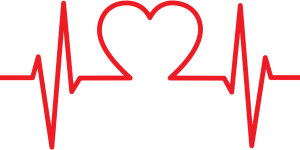Why is my blood pressure so important?
High blood pressure increases your risk of having a stroke or heart attack. It is also a risk factor for kidney disease, dementia and other illnesses. If you have high blood pressure, by lowering it with lifestyle changes and medicines you can lower your risk of these problems.
What is blood pressure?
Blood pressure is the pressure of blood in your arteries. If it is too high over a period of time and is not treated, you will be more at risk of having a stroke or heart attack. High blood pressure usually has no symptoms which is why many people do not know they have it.
The only way to find out if you have high blood pressure is to have regular checks and remember the numbers in the same way as your height and weight. In other words, Know your Numbers! – and encourage your family and friends to do the same.

What do the numbers mean?
When you have your blood pressure measured it is written like this: 140/90mmHg, which is said “140 over 90”. The first number is your systolic pressure, when your heart pushes blood round your body. The second is the diastolic, when your heart relaxes.
What should my blood pressure be?
A healthy blood pressure is 120/80 or less. You should aim to get your blood pressure to this level. 140/90 is the level used to diagnose high blood pressure, whatever your age. If your blood pressure is consistently raised at this level or above, it will need to be lowered, to reduce your risk of stroke and heart attack.
What causes high blood pressure?
For most people there is no definite cause, however, some things make it more likely:
– a family history of high blood pressure,
– heart attack or stroke,
– if you are of African or Caribbean descent,
– if you are of South Asian descent,
– your age – blood pressure tends to go up as we get older.
– your lifestyle can also affect your blood pressure. For example, being overweight, eating too much salt, doing too little exercise, drinking too much alcohol and not eating enough fruit and vegetables can cause high blood pressure.
How can I lower my blood pressure?
You can lower your blood pressure by changing your lifestyle and, if necessary, by taking medication as directed by your doctor.
Everyone can lower their blood pressure by making a few simple lifestyle changes:
Eat more fruit and vegetables
These are the best source of potassium in the diet, which helps to lower blood pressure. Try to eat at least five portions of fruit and vegetables a day. Don’t forget that frozen, canned and dried varieties count too.

Eat less salt
Eating too much salt raises your blood pressure. An adult should eat less than 6g of salt a day, but most of us eat much more than this. 75% of the salt we eat is “hidden” in our foods, so make sure you check food labels for salt content and don’t add it to your food.
Drink alcohol in moderation
Think about what you are drinking. You should drink no more than 14 units of alcohol a week for BOTH men and women.
Lose weight if you need to
If you are overweight then your blood pressure is likely to be higher than if you were the correct weight for your height. If you lose the excess weight you will probably find that your blood pressure reduces.

Be active
Aim for half an hour of exercise on five days of the week. The exercise needs to make you breathe faster and warm you up. How about a lunchtime walk or some energetic gardening? You don’t have to go to the gym to be doing yourself some good.
Medication
Some people will also need to take medication prescribed by their doctor to lower their blood pressure. Today’s blood pressure tablets are very effective in lowering your blood pressure and reducing your long-term risk of stroke and heart attack.
Can I check my blood pressure at home?
A proper diagnosis of high blood pressure can only be given by a doctor, but many people find it useful to keep an eye on their blood pressure by checking theirs at home with a digital home blood pressure monitor.
There are many on the market but Blood Pressure UK advises that you should use one that has been clinically validated.
Here’s a guide to blood pressure levels. Remember, it is possible to have a one-off high reading and a proper diagnosis can only be given by a doctor.
Blood pressure reading:
120/80mmHg or less
Your blood pressure is at the optimal level but the lower you can get it the better. Follow the lifestyle advice given above to prevent your blood pressure going up with age.
Between 121/81- 139/89mmHg
Your blood pressure is higher than it should be – take action now to lower it.
140/90mmHg or higher
If your readings are consistently at or above this level you have high blood pressure – take action now to lower it. See your GP if required.
Please visit www.bloodpressureuk.org for more information and guidance.
